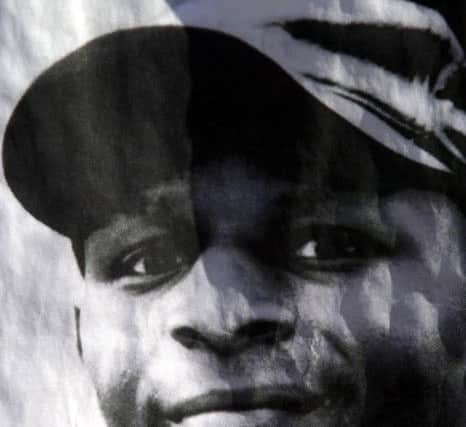Police spied on sister of ex-para killed in Hull cells - but they won’t be charged


In a letter sent to Janet Alder, the Crown Prosecution Service said it had decided not to charge four senior Humberside Police officers responsible for the surveillance after concluding that there was not enough evidence to secure a conviction of misconduct in public office.
But it outlined evidence showing that surveillance officers followed Ms Alder, her barrister and her supporters after a July 2000 hearing of the inquest into the death of her brother Christopher, who died in the custody suite in Queens Gardens police station in Hull in 1998.
Advertisement
Hide AdAdvertisement
Hide AdThe CPS said there was evidence that part of the surveillance team followed them to her hotel, while other members tracked another group to a car park, according to a newspaper.


Prosecutors are said to have told her that the police operation, which allegedly included at least one attempt to eavesdrop on a conversation with her barrister, was not properly authorised.
Ms Alder, who was campaigned for more than a decade for the truth about what happened to her brother, told The Guardian she was “absolutely appalled” and added: “I feel terrorised by the state.”
“It just confirmed everything I thought and that I was not being paranoid,” she said. “I never in my life knew anything like this - I always believed that the system did the right thing. For that to happen to me, it was so scary. I was just a normal working-class woman looking after my kids.”
Advertisement
Hide AdAdvertisement
Hide AdA CPS spokeswoman said today: “After careful consideration it has been decided that the CPS cannot bring charges in relation to misconduct in public office.
“This is because there is insufficient evidence to provide a realistic prospect of conviction. This decision was supported by advice from external counsel.”
Prosecutors say police applied for a surveillance application in anticipation of potential public disorder at Mr Alder’s inquest in July 2000.
But there was evidence that surveillance was carried out that went beyond this remit, including officers following Ms Alder and possibly her barrister.
Advertisement
Hide AdAdvertisement
Hide AdIn the end, prosecutors ruled that there was not enough evidence to provide a realistic prospect of conviction, partly because any prosecution would rely heavily on the evidence of police officers involved in the surveillance.
The CPS said that because the events happened 15 years ago, the majority of the witnesses spoken to “had, at best, a limited recollection of events”. All the officers involved said they could not remember being briefed for the surveillance operation.
Prosecutors said there was evidence a surveillance team followed Ms Alder, but “there is no evidence that anyone actually sought to eavesdrop on a conversation between Ms Alder and her barrister or that they were directed to do so”.
Explaining their decision, officials say a “high evidential threshold” is required to prove an offence of misconduct in public office.
Advertisement
Hide AdAdvertisement
Hide AdThey said the evidence available did not prove that the police had set out to listen to conversations subject to legal professional privilege or misuse a police surveillance operation to discredit Ms Alder or others, or as a result of a racial bias.
The Independent Police Complaints Commission (IPCC) finished its report earlier this year into “potential improper surveillance” carried out by Humberside Police on Ms Alder.
It was passed to the Crown Prosecution Service so a decision could be made on whether anyone has committed a criminal offence. The IPCC found there was a case to answer for four officers and this was referred to the CPS.
The evidence of surveillance came to light after all police forces were asked to check their records following claims the Metropolitan Police spied on the family of murdered teenager Stephen Lawrence.
Advertisement
Hide AdAdvertisement
Hide AdIn 2013 it emerged that two Humberside Police officers, one serving and one retired, refused to answer questions when interviewed under caution as part of the IPCC inquiry.
West Yorkshire Police was also asked to search its archives in 2013 and found a report relating to Mohammed Amran, a former race equality commissioner in Bradford who appeared at the Macpherson Inquiry into the Lawrence murder in Bradford in 1998.
In February this year, a report by the IPCC said an inadequate paper trail and the fading memories of ex-officers made it impossible to establish why a report was compiled by West Yorkshire Police into Mr Amran.
Ex-West Yorkshire Police chief constable Sir Norman Bettison was interviewed under caution over the intelligence report compiled in 1998.
He denied ordering the report and said a junior officer may have compiled it to impress him. The IPCC said there was no evidence to suggest the report was used to undermine his credibility.